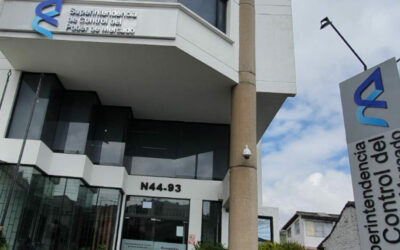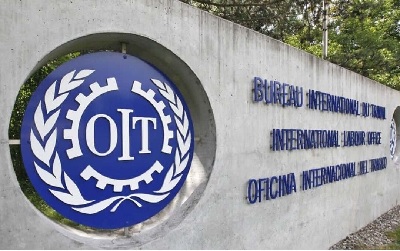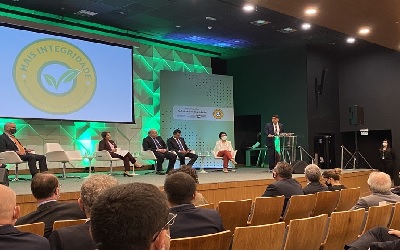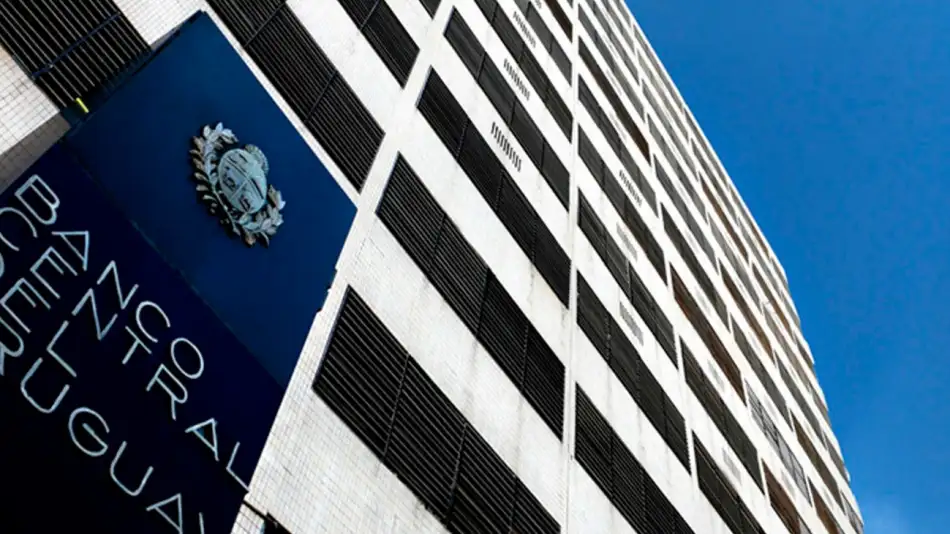
by Juan Manuel González | Apr 19, 2022 | Noticias-en
 On January 17, the Market Power Control Superintendence (“SCPM”) submitted the draft Organic Law on Unfair Competition (the “Draft Law”) to the National Assembly, which regulates and prohibits acts of unfair competition and proposes to convert the current SCPM into the Superintendence of Economic Competition.
On January 17, the Market Power Control Superintendence (“SCPM”) submitted the draft Organic Law on Unfair Competition (the “Draft Law”) to the National Assembly, which regulates and prohibits acts of unfair competition and proposes to convert the current SCPM into the Superintendence of Economic Competition.
It seeks to establish an autonomous protection system that regulates unfair practices, regardless of whether or not the perpetrator affects the market, different from the current regime under the Organic Law for the Regulation and Control of Market Power (“LORCPM”).
The Legislative Administration Council (“CAL”) of the Assembly has 60 days to qualify it and refer it to the respective Specialized Commission (Economic, Productive Development and Microenterprise) for processing (approval in two debates). If approved, it is not expected to take effect before the second half of 2022.
How does the current regime change?
The current regime will not change until, if applicable, a reform to the LORCPM is approved and comes into force.
The LORCPM typified some behaviors as unfair practices (acts of deception, imitation, comparison, violation of business secrets, among others) that are maintained in the Bill, but also include sales at a loss, decoy practices, pyramid selling , and covert commercial practices, as well as abuse in a situation of economic dependence (market power is not required, as indicated by the LORCPM).
Under the LORCPM, unfair practices that affect “competition, threaten economic efficiency, or the general welfare or the rights of consumers or users” were prohibited and punishable. The Bill seeks to differentiate between unfair practices that only affect individuals (which can be claimed before Civil Judges), and those that affect economic competition and general interest, called aggravated acts of unfair competition (which can be claimed before the Superintendence of Economic Competition or by civil means, and establishes penalties of 8%, 10 and up to 12% of the gross income received by the offender in the previous year).
In addition, it should be noted that the reversal of the burden of proof is contemplated, that is, the accused must prove that there is no infraction.
For more information contact:

Maria Rosa Fabara | Partner Bustamante Fabara | mrfabara@bustamantefabara.com

by Juan Manuel González | Apr 13, 2022 | Noticias-en
On March 15, 2022, the Chamber of Senators ratified Convention 190 of the International Labor Organization (“ILO”) 190 on workplace violence and harassment, which aims to force employers to establish preventive and disciplinary measures to eradicate any type of physical and/or psychosocial violence that workers may suffer for the provision of their services.
The most relevant points of the Agreement are:
An inclusive approach, with a gender perspective;
Global definitions regarding violence, harassment and discrimination based on gender issues;
Control of the application of sanctions, means of prevention against acts of violence and repair of damages; y
Sensitization to the problem of workplace violence and harassment;
The Convention will be deposited with the ILO and once its general director registers it, it will enter into force the following year as a Mexican regulatory framework and must be published by decree in the Official Gazette of the Federation.
The purpose of the Agreement is to counter negative attitudes and behaviors for the free development of the person within the workplace. Companies will have to create or update their policies, protocols and mechanisms to develop a harmonious environment free of violence and harassment.
Currently, within the Mexican laws and regulations, there are already some current obligations that attend to the content of said Agreement, among which the following stand out:
The elaboration of a protocol in conjunction with the workers, for the prevention of discriminatory acts for reasons of gender, violence, harassment or sexual harassment, based on the Federal Labor Law in its article 132 section XXXI; and
The development of a policy and mechanisms for the prevention, monitoring and application of sanctions, based on the Official Mexican Standard NOM-035-STPS-2018, Psychosocial risk factors at work-Identification, analysis and prevention (“NOM035”) , which focuses on:
a) The prevention of psychosocial risk factors;
b) The prevention of workplace violence; Y
c) The promotion of a favorable organizational environment.
The Ministry of Labor and Social Welfare, through the federal labor inspection department, must ensure that said measures and obligations are applied in the work centers. In the event that the Secretariat, through the federal labor inspection directorate, finds irregularities and/or notices any type of non-compliance with respect to said provisions, it may impose fines that may vary from 50 to 5,000 UMAS for each possible non-compliance attributable to the employer, which is equivalent to an amount of $4,811.00 up to $481,100.00 pesos. It is important to note that the aforementioned amounts may increase depending on the number of breaches or omissions that can be detected.
In order to be prepared to comply with ILO Convention 190, we recommend that companies begin to observe the obligations in this same sense. We suggest starting with a list of obligations and compliances in order to determine the company’s current degree of compliance.

by Juan Manuel González | Apr 13, 2022 | Noticias-en
The Minister of the Comptroller General of the Union (CGU), Wagner Rosário, participated on Wednesday, March 23, in Brasilia, in the delivery ceremony of the More Integrity Seal 2021/2022 of the Ministry of Agriculture, Livestock and Supply of Brazil.
Agribusiness companies and cooperatives were awarded for adopting integrity practices focused on social responsibility, environmental sustainability and ethics, based on the evaluation of the Seal Management Committee, which includes the participation of a CGU representative. The Map Minister, Tereza Cristina, also participated in the event along with other authorities.
The More Integrity Seal of the Ministry of Agriculture, Livestock and Supply is aligned with the Program for the Promotion of Public Integrity (Profip) of the CGU. During the event, Minister Wagner Rosário highlighted the good results of the efforts of public and private institutions, together with civil society, in favor of ethics and integrity. “Our state-owned companies, for example, are all aligned with the recommendations of the OECD Integrity Council. The state companies that seven years ago were involved in corruption scandals, harming the treasury, today show good results”, he said.
The minister also said that, in a survey carried out with the World Bank, in 2021, in alliance with the Federal Government, 22,130 public servants were interviewed, with an average experience of 16 years in the work, in all the federal units of the country and in all ministries. According to him, of these public servants, 58% said they had observed unethical acts in the federal government during their career in public service. “When we ask that, in the last three years, that number has dropped to 33%. The numbers are not good yet, but they already show that the work of public and private institutions, together with civil society, is bearing fruit”, he celebrated.
For Wagner Rosário, integrity must be associated with a rational and reasonable attitude. “This is the daily challenge in our profession, a change of mentality. With a stronger culture of integrity, we will need less control. it is a process. Patience is needed for this culture to be absorbed by all. And, as much as many people try to denigrate the image of Brazil, public and private efforts have made a difference in the country”, he concluded.
17 organizations from the agricultural sector were awarded, nine of which received the award for the first time and eight achieved renewal of the certificate. On the occasion, the “Mais Integrity Seal – Special Version” was also launched and four organizations were recognized with the delivery of the “Mais Integrity Seal Partner Association 2021/2022” trophy.
Minister Tereza Cristina highlighted the efforts of companies and cooperatives in the agricultural sector to maintain the full purpose of management, even in the face of the challenges imposed by the pandemic. According to her, this will open up markets that were previously considered unattainable. “Since we started the project, we have been fully aligned with good management practices, with social responsibility and environmental sustainability. We support companies on several fronts and we have space to promote, through our Agrointegro registry, even those that are with initial integrity actions. Today we already have almost 30 registered companies and cooperatives,” she said.
The ordinances approving the Mais Integridade Seal Brand Manual and the regulations for the next edition of the award by the Ministry of Agriculture, Livestock and Supply also took place during the ceremony.

by Juan Manuel González | Apr 13, 2022 | Noticias-en
Last December 2021, the Minister of Justice of the Plurinational State of Bolivia, Iván Lima Magne, went on to state that during March 2022 the judicial reform would be carried out based on the announcement made by the president, Luis Arce Catacora, in a report to international organizations.
The minister pointed out the commitment he has with the people to carry out a judicial reform that is objective.
After the recommendations of international organizations, Minister Lima made official that the Judicial Summit will be held this year, based on the recommendations made to the Bolivian Government by the Interdisciplinary Group of Independent Experts (GIEI-Bolivia) and the Committee Against Torture ( CAT, for its acronym in English).
Likewise, Minister Lima mentioned that the diagnosis made in the departmental socialization meetings of the six axes of the reform and the guidelines established at the 2017 summit will be added to the debate.
The axes proposed by the Ministry of Justice for the reform are: conflict balancing (uniform and strategic distribution of judges in the country), access to justice, judicial independence, information and communication technologies, regulatory development and institutional transparency .

by Juan Manuel González | Apr 13, 2022 | Noticias-en
In October 2021, the Central Bank of Uruguay issued Communication 2021/199, where in reference to the Financial Information and Analysis Unit, it enables and regulates the digital presentation of the report form for unusual or suspicious transactions by the subjects obligors of the non-financial sector (article 13 of Law No. 19,574).
Through the following link you can access the instructions for sending the aforementioned reports, prepared by the Central Bank of Uruguay.






